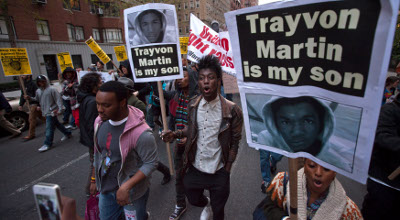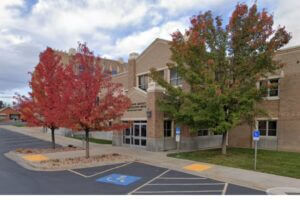While important details of Trayvon Martin’s killing have not yet come to light, the tragedy and injustice are clear. We must relentlessly pursue the whole truth of what happened that night, no matter who it discomforts. We must also reflect upon what this painful incident says about all of us.
A core principle of faith traditions is to love thy neighbor. Yet in this tragic case, and far too often in our society, the basic tenets of love and respect are subverted and replaced with mistrust and apathy.
This heartbreaking tragedy calls us to re-embrace our commitment to love one another and reminds us that more must be done to heal not only our communities but our nation, not only our relationships but our system.
As pastors, we believe that changing hearts and building a more just society are enormous, interwoven tasks.
Although America has made much progress toward building what the Rev. Martin Luther King Jr. called the beloved community, we have not yet transcended the racial divisions and violence endemic to our culture.
The fact that Trayvon’s family and George Zimmerman lived in the same gated community in the South is a mark of how far we’ve come as a nation. The fact that Trayvon was presumed to be a threat, followed and shot to death is a testament to how far we have to go.
The slow, ambivalent reaction to this tragedy by many in the white Christian community demonstrates the need to break down stereotypes and fear, and to build closer relationships across racial lines. Transcending this division is a responsibility for people of all races and creeds.
We also need to honestly reckon with the fact that our society often devalues the lives of young black men. This lesser love is manifested in a variety of ways beyond Trayvon’s killing: the scourge of violence in black communities that claims the lives of so many young men. The incarceration of 1 million African-Americans. The white community’s support of a criminal-justice system that takes a terrible, unjust toll on minority communities. African-American men are often seen as suspects first, and human beings second.
The faith community has a moral obligation to address this sickness rather than ignore or excuse it.
A closely related problem also afflicts Americans of all races—an exaltation of violence.
Politicians pass laws that encourage people to not only carry guns, but to use them. Violent video games, music and movies occupy the top of the charts. “If it bleeds, it leads” is a rule of thumb in the news media.
This would all be far less prevalent if we didn’t respond to it. Americans vote for those politicians, download those songs and tune in to those newscasts. Trayvon died on a quiet street, but in a culture that condones and celebrates gun-play. It should come as no surprise that Americans shoot and kill each other at far greater rates than do the citizens of any other wealthy country.
And as the fallout of this tragedy shows, we don’t all mourn when the innocent die. National opinion polls, media sensationalism and offensive rhetoric reflect that the death of this young man has become a flashpoint for division rather than a call to reconciliation among too many Americans.
It doesn’t have to be this way. Not too long ago, lynchings were commonplace, entire towns were off-limits to people of color, and police brutally enforced segregation. But the Civil Rights Movement showed that the teachings of our faiths can foster the peace, love and courage that break down barriers, change people’s hearts and build a more just society.
We can bring about the day when being the wrong race in the wrong place at the wrong time isn’t a life-threatening circumstance. But progress will take an honest acknowledgment of how much work we have to do, and an earnest desire to do it. We owe Trayvon Martin and the countless others who are killed on our streets and in our communities every day our best effort. The teachings of our faith demand nothing less.
The Rev. Nelson Rivers III, vice president for Stakeholder Relations with the NAACP, is a preacher, civil rights professional, and community organizer. Dr. Joel C. Hunter is senior pastor of Northland, A Church Distributed, in Longwood, Fla.
See an error in this article?
To contact us or to submit an article





















